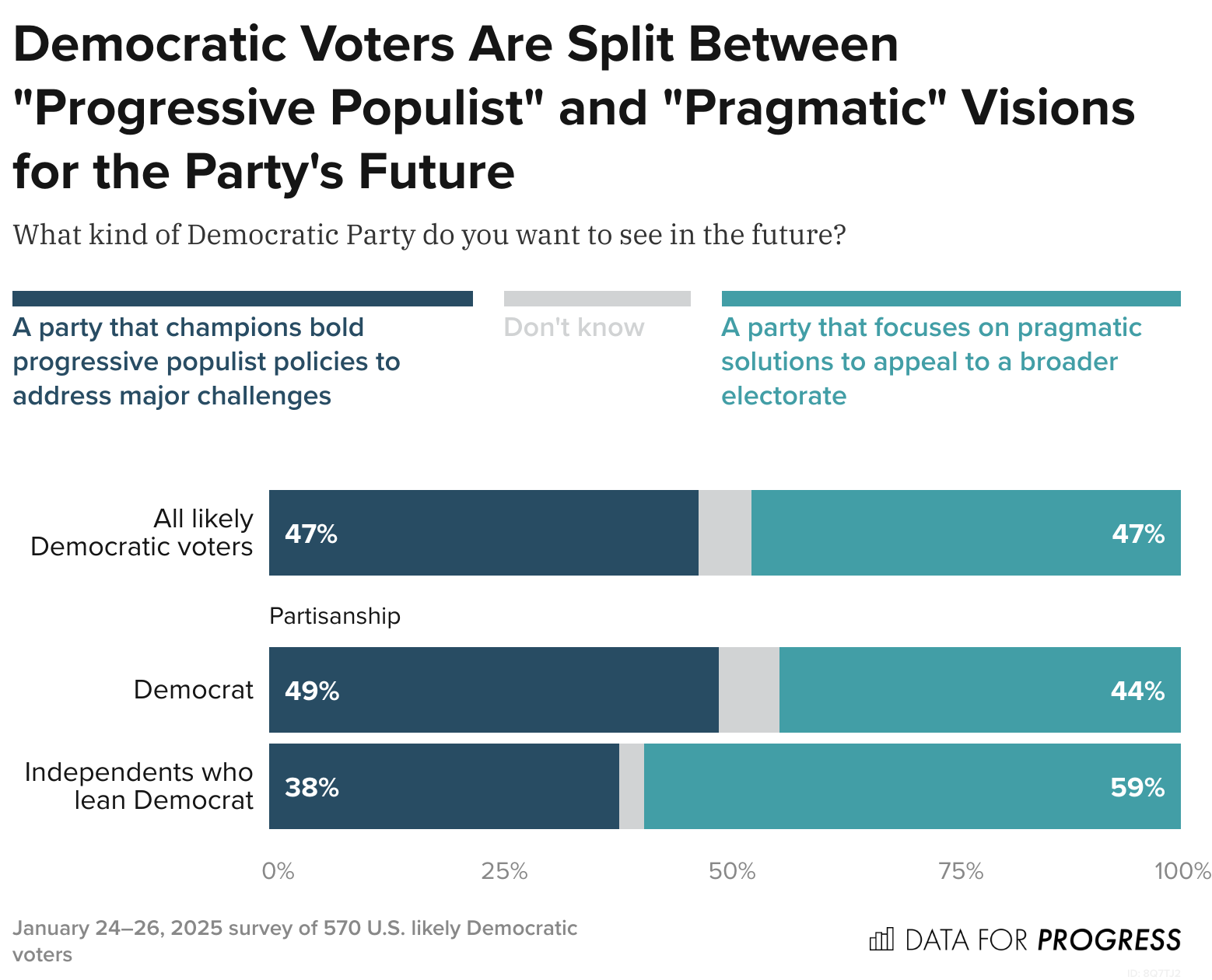Democrats Want a DNC Chair Who Can Unite the Party — but They’re Divided on Key Approaches
By Ryan O’Donnell
Following a disappointing election for Democrats last November, the Democratic National Committee (DNC) will elect its next chair tomorrow — a choice that will be a key indicator of the party’s strategic direction and priorities moving forward. While most voters don’t follow party leadership closely, the stakes are still high. The next chair will help shape how Democrats organize, fundraise, and communicate their message nationwide as they navigate President Trump’s new administration and Republicans’ control of Congress. Democratic voters may be divided on the party’s direction, but they agree on the need for a leader who can unify, articulate a resonant economic message, and invest in long-term infrastructure to strengthen its reach and effectiveness.
New polling from Data for Progress shows that, more than anything, Democrats want a DNC chair who is a strong communicator (51%) and a unifier (46%). Among voters who don’t identify as Democrats but still vote for them, the desire for unity is even stronger. Democrats want the next DNC chair to be someone who can bridge ideological divides throughout the party.
This divide plays out in how Democrats want their party to approach its future. Democrats are split between whether the party should champion bold progressive policies (47%) or focus on pragmatic solutions (47%). While the DNC chair doesn’t dictate policy directly, this divide underscores why unifying leadership is necessary. The next chair must navigate a coalition that includes both factions and ensure that party resources and messaging reflect the priorities of a broad Democratic electorate that seeks to win back control of Congress and the White House.
If there’s one issue that unites Democrats right now, it’s the economy. Across all demographics, Democrats overwhelmingly want the party to focus on economic issues like wages and jobs (63%) rather than cultural debates (31%). This isn’t about abandoning core Democratic values on equity and justice; it’s about recognizing that economic struggles are at the center of voters’ lives, and that those struggles must be at the center of Democratic messaging after November's election results. The next DNC chair can help lead the way in ensuring that the party’s organizing and messaging efforts emphasize economic issues in a way that resonates with voters.
Beyond messaging, Democrats recognize the importance of long-term party infrastructure. While 37% say the chair’s top priority should be promoting unity, 27% prioritize building party infrastructure across all 50 states.
The DNC chair may not be a household name, but beyond immediate responsibilities, their leadership will signal how the party presents itself to voters and the direction it intends to take. This choice isn’t just about the next election — it’s also about setting the tone for how Democrats engage with the electorate. This polling shows that voters want a chair who can unify a divided coalition, elevate economic concerns, and ensure the party is building for the future. Tomorrow, the Democratic National Committee will make its choice — one that will influence how the party presents itself to voters and organizes for the fights ahead.
Ryan O’Donnell (@ryanodonnellpa) is the Deputy Executive Director at Data for Progress.




